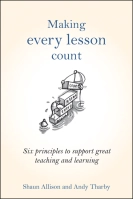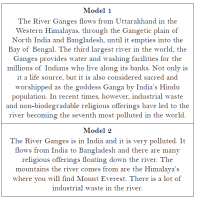As 2017 draws to a close, we bring you the best of the blogs that have been shared on classteaching. It’s been another great year for educational blogging, with an increasingly sharper focus on evidence-informed practice. As a profession, we are all indebted to the hundreds of colleagues who use their own time to very generously share their own thoughts and reflections through blogging. It really is such a rich and varied source of CPD.
So here we go, for every month we have picked one blog from the classteaching archives and one ‘blog of the week’. Enjoy!
January
The value of pausing by Ben Crockett looks at how we can use pause lessons to help students embed the core knowledge that they need.
Is all practice good? by Daisy Christodoulou explores the importance of thinking about what we ask our students to practise.
February
In this post about homework, Chris Runeckles talks about how we have tried to make homework more purposeful at Durrington, by being explicit about what we want it to achieve.
Content, thinking and shaping by Andy Tharby provides a great way of framing our approach for our more able students.
March
Is it really a low stakes quiz by Tod Brennan explores how we can really ensure that when quizzing students to develop retrieval practice, we are making it low stakes fro the students.
Why formative assessment matters by Harry Fletcher-Wood discusses why the prior knowledge that students bring to our classrooms is so important and how we should use it.
April
‘Now that’s what I call CPD’ describes how our science department are effectively implementing our subject-specific approach to CPD this year – Subject Planning & Development Sessions.
‘Good Direct Instruction’ by Ben Newmark is a great examination of the most effective features of direct instruction.
May
‘Why playdough is not the best way forward when teaching geography’ by Hannah Townsend is a brilliant guest post, where Hannah reflects on the importance of not dumbing down your subject and having the highest expectations of what students can achieve.
‘Five things I wish I knew when I started teaching’ by Carl Hendrick is just fabulous. It explores some common misconceptions about teaching and learning and is a ‘must read’.
June
’10 simple things to try and have a better work life balance’ by Becky Owen is a very practical blog by a very successful teacher, about how she maintains a healthy work-life balance.
‘What is not working in education (and what we can do about it)’ by Sarah Donarski gives some great advice about what we can be doing to become evidence informed as teachers.
July
‘Using storytelling as an explanation tool’ by Russ Shoebridge explores one of the forgotten arts of teaching – explanation – and the important role storytelling plays in explanations. This is also marked one of the last 15 minute forums at Durrington, after a run of about six years. They had been brilliant for building a culture of teachers talking about their teaching, but it was time for a different approach.
Mark Enser has been one of the most prolific bloggers of 2017 – and one of the best. In this post, he reflects on how his geography team are developing assessment.
August
Just the one post in August – Getting off to the best start with a new class.
September
The new academic year kicked off with the opening of ‘The Durrington Research School’. In this post, we set out what we want to achieve with this exciting new project.
Memory not memories by Claire Sealy was an excellent exploration of how some of the key ideas from cognitive science about supporting memory can be applied to the classroom.
October
More questions = fewer pointless powerpoints by Alex Mohammed was one of the first new ‘Teaching Forums’ at Durrington. Rather than teachers having to attend 15 minute forums after school to hear about the effective practice of their colleagues, we interviewed them and wrote it up as a blog. This meant that teachers could still hear what their colleagues had been up to in their classrooms, but at a time that suited them.
Rethinking boys engagement by Mark Roberts is a really important blog. It dispels many of the myths around addressing boys underachievement and gets to the root of the problem.
November
During our INSET day Fran Haynes talked about our new literacy focus – explicit vocabulary instruction. This blog outlines our approach.
Making his second appearance in this list, Harry Fletcher-Wood was on fine form with ‘Planning lessons using cognitive load theory’.
December
Making spaced practice count by Morwenna Treleven is a great example of a teacher mobilising research evidence to great effect in their own classroom.
‘Tips and tricks for spaced learning’ by Paul Kirschner and Mirjam Neelen is also a great example of how to take education research into the classroom.
A very big thank you to the staff at Durrington and the many bloggers out there, whose work has featured on, or influenced this blog. Have a great holiday and all the very best for 2018.
In loving memory of Martyn Simmonds 1981-2017.
An excellent teacher, leader and frequent contributor to this blog.























